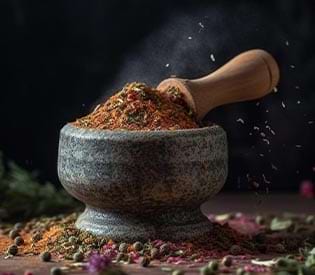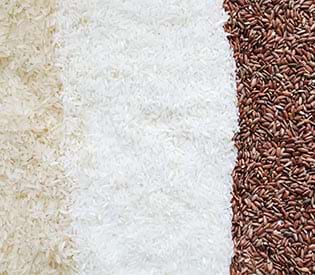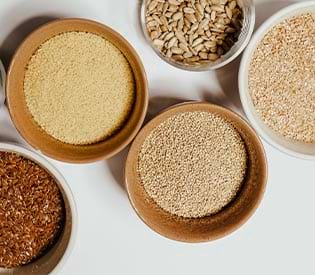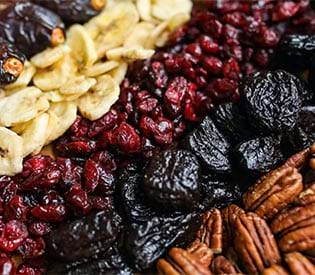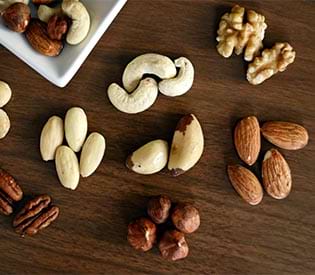Muira Puama Herb
📦🚚 Fast & Free shipping on all orders
What is Muira Puama Herb?
Northeastern Brazil is home to the little tree known as Croton echioides. Because of its many health benefits, the bark of its stem has been utilized for ages, and it is regarded as a suitable replacement for Ptychopetalum olacoides. Warming the body energetically, muira puama is also known for its calming effects and for being a tonic herb that supports healthy reproductive function. The bark of Muira puama is usually made into a tincture. It may either be used topically or decocted as muira puama tea.
An understory tree found in the Amazonian rain forest is called Muira puama. Reaching a height of 15 feet (5 meters), it produces white blossoms that have a strong jasmine aroma. The jungle's traditional herbal remedies make use of the bark and root. The bark and root are suitable for tea infusions, but tinctures are more effective. Mix the tincture with a small amount of warm water, slightly sweetened with lemon juice. This step facilitates the beneficial tannins' absorption. Another practical form is a capsule. The Amazonian natives use muira puama to make an amber infusion by combining it with catuaba and letting the mixture steep in warm water for a full night.
How do I use Muira Puama Herb?
The tincture is suitable for tea infusions, although it performs better in tinctures. Mix the tincture with a small amount of warm water, slightly sweetened with lemon juice. This step facilitates the beneficial tannins' absorption. Another practical form is a capsule.
Muira Puama Herb benefits:
Summary. A shrub called Muira puama thrives in the Amazon area. You may produce medication out of the wood and root. Although there isn't enough reliable scientific data to back these claims, muira puama is used to treat menstruation problems, joint pain, sexual difficulties, and increased desire for sex in healthy individuals, among other ailments.
◉ Improves brain health: Traditional medicine uses MP roots to treat conditions affecting the brain and central nervous system. Because MP has antioxidant properties, it prevents oxidative stress from damaging the brain by lowering the generation of free radicals in the hypothalamus.
◉ Stimulates Libido: Early American explorers were drawn to Muira Puama mostly because of its potent aphrodisiac properties. In a research study looking at its ability to increase libido, 202 healthy women with low sex drives were assessed. Sixty-five percent of participants reported increased desire and sexual pleasure after using Muira Puama supplements for a month. The study's female participants also reported having more fantasies and had more intense orgasms.
◉ Boosts Physical Performance: Muira Puama is not an exception to the historical trend of men and women of all ages using herbs to improve their physical performance. Brazilians widely use the plant as a natural tonic to combat weariness and enhance physical and athletic performance. What is the rationale for this? Studies have shown Muira Puama to have modest stimulating properties.
◉ Promotes a Healthy Stress Response: Mothers who balance work with managing their home and professional lives often experience significant stress. Stress may have negative impacts on a person's health. Numerous studies demonstrate that long-term, uncontrolled stress raises insulin and blood sugar levels and has a deleterious effect on the immune system. Anxiety reduction is something that may greatly lessen emotional and mental stress, and muira may be useful for this.
Where can I buy Muira Puama Herb?
Buy Muira Puama Herb from the health food store in the USA, Alive Herbals.
Muira Puama herb information (at a glance):
| Product Name | Muira Puama Herb. |
| Scientific Name | Liriosma ovata Miers. |
| Country of Origin | It is native to Brazil. |
| Ingredient | Muira Puama Herb. |
| Taste & Aroma | It has a sweet, warm taste and bears white flowers with an intense scent of jasmine. |
| Shelf Life & Storage | Shelf Life is about 06 - 24 months. Store it in an airtight container in a cool, dry place and prevent sunlight exposure. |
| Precautions | We requested you, Before consuming spices, herbs, teas or any kind of natural products you consult an expert qualified healthcare practitioner or herbalist. |
| Note | This product information has not been appraised by the Food and Drug Administration (FDA). This information is solely intended for educational purposes. |


